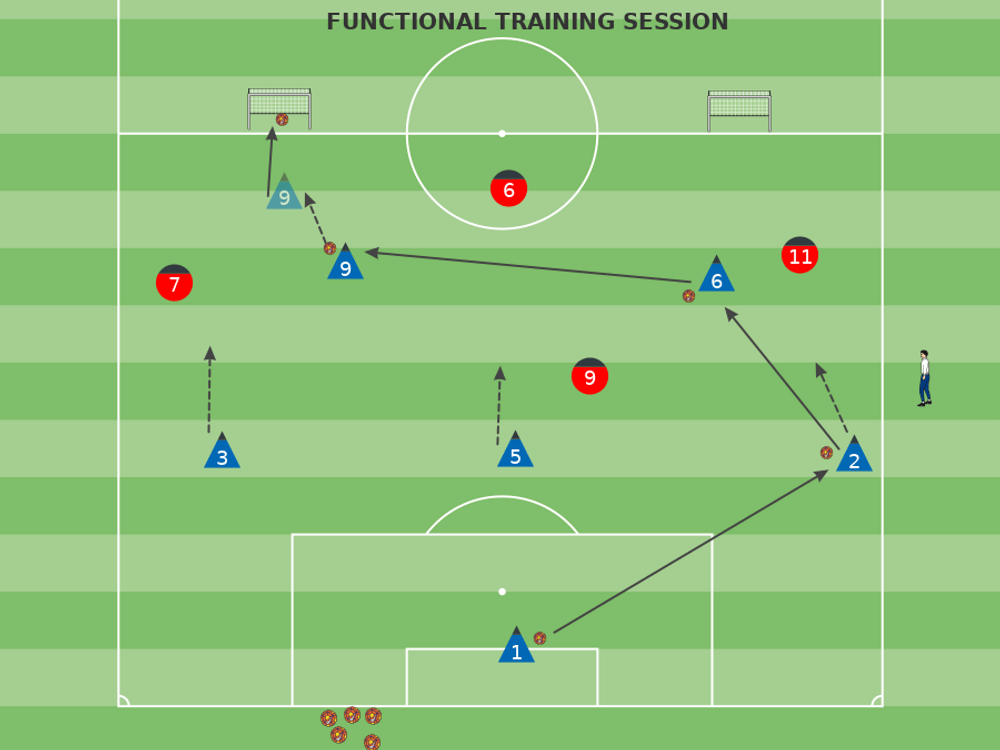REALITY-BASED TRAINING

What’s great about coaching, it can be taught through different methods.
Your players’ age and the stage of their development will factor heavily in which model you select. In addition, the area of focus (technical, tactical, physical and psycho-social) will influence your choice.
The More You Study, The Less You Know
Being born in England it was only natural to grow up playing football (soccer in the USA). I played through college and I’m a true fan. With that in mind, it made me believe I had all the expertise.
My first team was a U11 girls’ team in 2000. As I reflect now on the beginning of my coaching journey, I was guilty of the 4 ‘L’s – Lines, Laps, Lecture, and Language downfall.
Warm-ups were jogging around a huge field, followed by stationary passing drills. Fortunately, I took a coaching course with Kenichi Yatshuhashi who was a great coach and mentor who showed me the coaching education pathway.
Your Coaching Journey
Gaining a deeper understanding of coaching methods can transform your players into a winning team. These training methods can solve the identified problems so that you can focus on ‘coaching your player’ and not worrying about the method.
Your understanding of different coaching methods will help you decide what is age and stage appropriate for training your players.
Your choice of what to teach should be prioritized based on age, and also the player’s ability. Your methods can teach technique, tactics, fitness, and psychology separately or combined.
Methods of Coaching
Play-Practice-Play
Three-phase training session.
- Play 1 – small-sided game, 1v1…4v4. Does not have to be specific to an area on the field
- Practice – game-like activities, 6v5, 6v4 plus GK. Specific to an area on the field.
- Play 2 – training in a game format. Even numbers, positions & rules applied.
Ideal for youth training U6 to U12.
Small-Sided Games
Played on smaller fields with fewer players than 11v11.
Ideal for younger soccer players, but can be played by all ages.
Games size 3v3, 4v4, 3v4.
Functional Training
Training occurs in a specific area of the field where a player or group of players perform.
Specific to training roles and responsibilities with opposition for players U12 and older
Shadow Play
Training specific repetitions (movements) within an area of the field.
Often does not involve opposition. Visual cues are explained to share scenarios in the game.
Frequently occurs a day before a game during a walkthrough. More appropriate for U12 and older.
Progressive Method
Training focuses on teaching techniques through 4 phases.
- Fundamental (no opponent),
- Game-related (introduce opponent w/ condition),
- Game condition (restrictions taken off defender)
- Technical functional exercise.
Applicable to players U8 and older. Not specific to an area on the field.
Coaching In The Game
The training methods are used to primarily teach tactics.
Opponents are always ‘live’, that is, providing realistic opposition.
Small numbers 1v1…3v3 focusing on the following:
- Individual Attacking
- Individual defending
- Group Attacking
- Group Defending
Applicable to players U10 and older, not area-specific.
Pattern Play
This training involves specific repetitions (4-6) of a problem in the game.
Often players are unopposed (no defenders) when attacking. The use of stationary equipment creates additional challenges.
Ideal for players U13 and older.
Whole-Part-Whole
This is a conditioned (restricted) game training activity, that has 3 phases.
- Whole – a large group, complex training with opponents in a game.
- Part – a smaller group with or without pressure
- Whole – a large group, complex training with pressure in a game
Ideal for players U13 and older.
The effectiveness of your training methods will be related to the age and ability of your players. Other factors that should not be overlooked, are the area of the field and the aim of the method.
What coaching models have you been using? What has worked and what hasn’t?
Resources
- National Soccer Coaches Association of America (Coaching Academy) – National Diploma,
- US Soccer – National Coaching Program “A” License Course
- US Soccer Grassroots Coach Education, Play-Practice-Play (PPP) Model: An Evidence-Based Approach
Leave A Comment